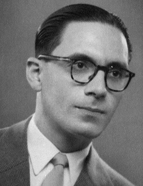

The major issues of international politics related to the New Colony he reserved for the second volume of A diplomacia portuguesa e os limites meridionais do Brasil . However, his sense of reality and his knowledge of himself and his work led him to warn , “ if we ever get round to writing it” … Nevertheless, he left several texts prepared to be published, including an important document by Sebastião da Veiga Cabral on the Colony of Sacramento, the original of which is in the Biblioteca da Ajuda [ Ajuda Library] and which LFA prepared for publication. It is the Representação estudiosa e útil para as Majestades, grandeza, e vassalos de Portugal [ Scholarly and useful representation for the Majesties, grandees and vassals of Portugal ] (1702), which had already been published in Uruguay from a very defective copy in the Biblioteca Nacional in Portugal, and which was highly criticised.
A Full Professor at the School of Arts and Humanities of the University of Coimbra (1981-1992), he belonged to the Academia Portuguesa da História [ Portuguese Academy of History] and was a member of the Instituto Histórico e Geográfico Brasileiro [ Brazilian Historical and Geographical Institute ] , the Instituto Histórico e Geográfico do Rio Grande do Sul [ Historical and Geographical Institute of Rio Grande do Sul ] , and the Instituto Histórico y Geográfico del Uruguay [ Historical and Geographical Institute of Uruguay] . He was a member of the Academia de Marinha [ Navy Academy ] and The Polish Institute of Arts and Sciences in America. His modesty, if not his shyness, prevented him from accepting any form of recognition of superiority from his peers. So even when it came to publications, it was difficult to get hold of them – there was always something to be confirmed.
Only belatedly and after much urging did he agree to put some of his work together in a volume. The choice was his, which meant that he naturally selected those that he found most satisfying. T hus , it appears as a kind of self-portrait of his interests as a historian. It is the history of techniques and aspects of the history of agriculture, the political testament of D. Luís da Cunha, the acclimatisation of plants from the East in 17 th and 18 th century Brazil, the Colony of Sacramento and the formation of Southern Brazil, D. João V and absolutism and the king ’ s library that are offered in Páginas dispersas [ Scattered pages ] , to which he added the subtitle Estudos de História Moderna de Portugal [ Studies in Modern Portuguese History ] . This took place in 1995, to celebrate his retirement in 1992. The author ’ s concerns, themes, historiographical construction and ever-discreet erudition can be seen in this volume . Luís Ferrand de Almeida was a very scrupulous researcher, mastering sources and bibliography in an unusual way. He wrote his texts by hand, in a beautiful script that he asked someone to type because he used neither a typewriter nor a computer.
This work is financed by national funds through FCT - Foundation for Science and Technology, I.P, in the scope of the projects UIDB/04311/2020 and UIDP/04311/2020.
